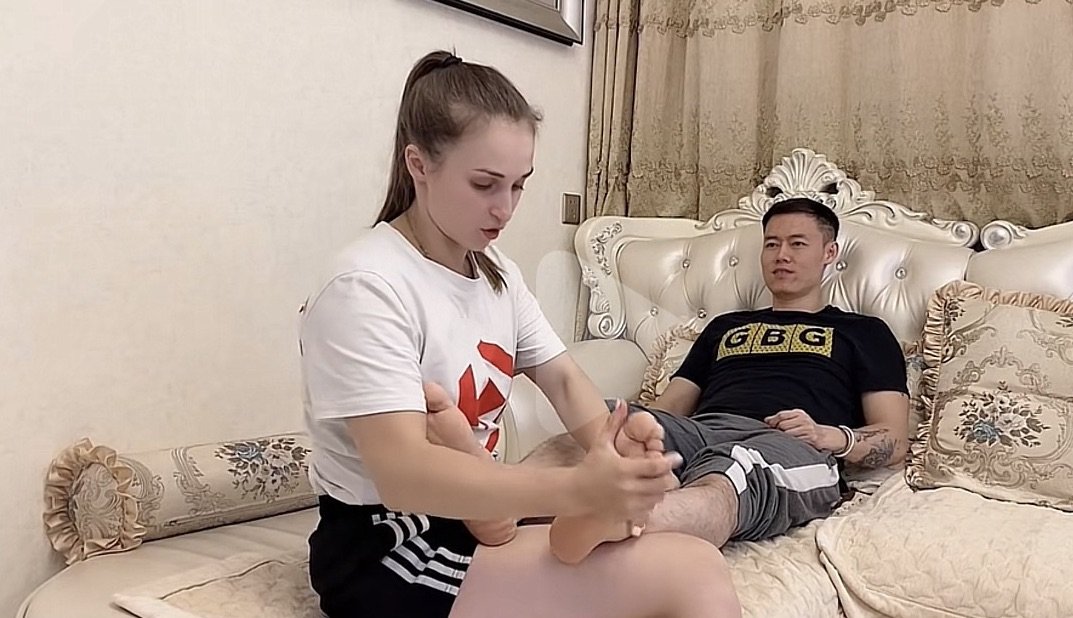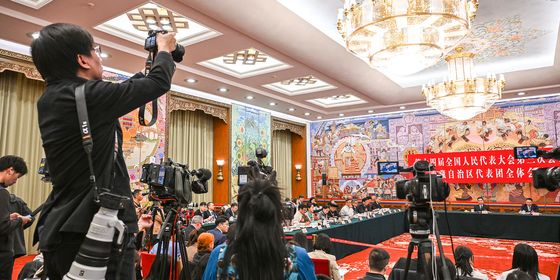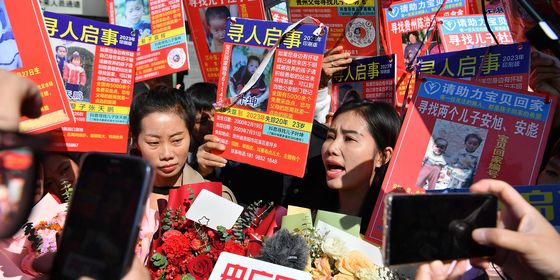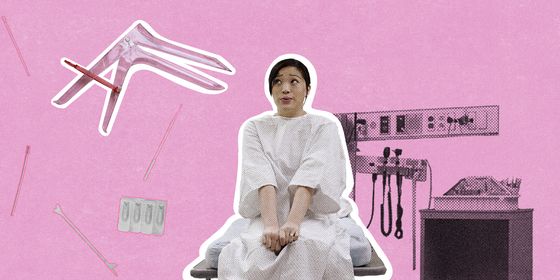Why the war in Ukraine sparked a wave of sexualized comments about female refugees on Chinese social media
On February 25, Weibo announced it had removed 542 “malicious” comments and temporarily suspended 74 accounts surrounding the war in Ukraine, which included sexualized posts about Ukrainian women.
One post noticed that “if war breaks out, there will be far fewer men in Ukraine,” creating a gender imbalance which would complement China’s own lopsided male-to-female gender ratio, and recommended a cross-border marriage strategy between China and Ukraine. Another relished the idea of welcoming female Ukrainian refugees into China: “16-to-22-year-olds with good looks take priority.”
These comments are the latest iteration of what some feminist commentators in the Chinese cyberspace have dubbed “crotch nationalism (裤裆民族主义),” a chauvinistic form of patriotism based on the objectification and sexualization of foreign women. According to gender activist Feng Yuan, co-founder of the NGO Beijing Equality, these types of sexist speech have “appeared in response to news incidents in the past.”
In March 2020, when China’s Ministry of Justice published draft rules to standardize the country’s permanent residency application and asked for public feedback, it triggered racist backlash from netizens claiming that this will allow “low quality” foreigners to bring AIDS to China, intermarry with Chinese women, and steal Chinese jobs—mixed in with comments welcoming “single foreign women” to intermarry with Chinese men. In August of last year, a WeChat account called “East Asian Men” published an article suggesting China should welcome “underage girls and adult single marriageable women” fleeing from Afghanistan, while “letting male refugees and families seek asylum in EU countries.”
Though Feng had not previously heard of the term “crotch nationalism” before speaking with TWOC, “the viewpoints it represents are long existing and commonplace,” she believes. “The roots of this type of discourse is the objectification of women as property of men, rather than her own person. The men who ‘own’ a woman could be her father, brothers, the patrilineal family, the community, or even the nation.”
One user on the social media platform Zhihu, who goes by the name “Pickup Truck,” claimed last summer to be one of the first Chinese netizens to have used the term, defining “crotch nationalists” as “men who pursue foreign girls to win glory for the country.”
Such viewpoints “are often mixed up in racially discriminatory opinions,” says Feng. “For example, when [netizens] see Chinese women dating or having children with men with dark skin...I don’t want to repeat the kinds of things they say.”
While the Global Times pointed out only “a very small portion of netizens” are responsible, and a blog post republished by the Cyberspace Administration of China says sexist “adopt a Ukrainian girl” slogans are similarly being posted in other languages on Twitter, the commodification of Ukrainian women has its own history in China. The hashtag “Ukrainian Beauties” has 2 billion views on Douyin at the time of writing, with hundreds of videos all highlighting the physical beauty of the nation’s women.
One video found by TWOC, with 10,000 likes and uploaded by an account titled “My Ukrainian Wife Livestream,” which purports to offer “live chats about how to chase foreign girls,” shows a Chinese man kissing a texting foreign-looking woman. Alongside the hashtags “Ukrainian beauty” and “foreign wife,” the poster celebrates the woman’s value alongside his other material possessions. “People in my hometown don’t understand why I don’t have a car, a house, or any savings, and am over 30 years old,” reads the caption, “but I managed to marry such a girl.”
In a feature published as far back as 2018, TWOC noted a racial hierarchy in the way cross-borders marriage is perceived in Chinese popular culture, with Ukrainian women getting particular attention due to a matchmaking service called ULove. It was founded by an internet celebrity named Mei Aisi, who attended a university in Ukraine after flunking his college entrance exams at home, and married a young local woman. Cashing in on its founder’s story, ULove purported to help other Chinese men find interracial love for 69,000 to 1 million yuan (10,900 to 159,000 US dollars), with its website referring to Ukrainian women as jipin (极品), or “high-end products.”
ULove’s Weibo account has since been deleted, but Mei’s influence is still pervasive. A thread titled “What is it like to marry a Ukrainian beauty?” on Zhihu, featuring Mei’s story, has now been viewed 1.7 million times.
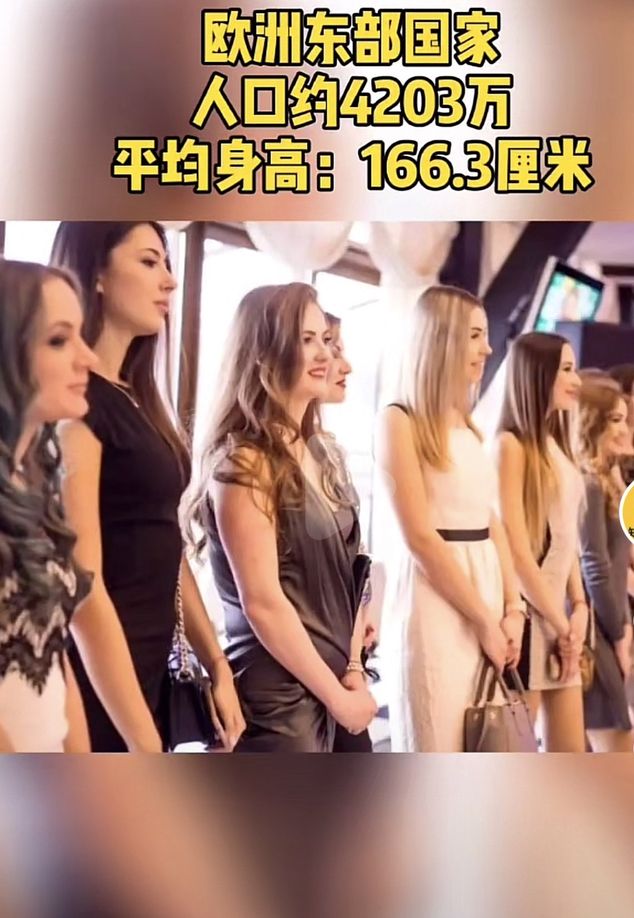
A video sharing the average height of Ukrainian women compared to other European countries (Screenshot from Douyin)
China’s family planning policies and a culture favoring boys to continue the family lineage has resulted in a gender imbalance, with the latest census in 2021 revealing there were 34.9 million more men than women in China, implying that millions of “surplus” men (called “bare branches”) will not be able to marry—likely men in rural areas or migrant workers in cities, without much in the way of education or economic prospects.
This was the defense used by “East Asian Men” when other Chinese netizens criticized their position on Afghan women: They claimed they were hoping to “solve the marriage problem of migrant workers.” The reasoning was couched in patriotic duty: “Isn’t it normal to love one’s own countrymen over foreigners?”
On February 25, this WeChat account also published a list of policy suggestions for the upcoming “Two Sessions”—meetings of China’s highest lawmaking bodies—in Beijing later this week, with numerous schemes to encourage foreign women to migrate to China. This included “large-scale introduction of foreign single marriageable women...to solve the problem of ‘bare branches’ in China,” adding, “it should be dominated by East Asian and Southeast Asian women, with a certain number of white and Latin women, but not Black, Muslim, or Indian women.”
Addressing the gender imbalance was the same rationale one reader gave to WeChat blogger Lei Silin under a post condemning the practice of Chinese men traveling to Vietnam to buy a bride. “Those who buy Vietnamese wives are the lowest-level farmers or migrant workers in the country,” the reader stated in their comment, questioning why those who work the hardest and are “carrying the burden of the nation” should be left out of marriage.
On the other hand, China’s own cyberspace has been divided in recent weeks over the use of traditional gender values and the plight of poor, unmarried men as a justification for the trafficking of women within the country. Under an article by WeChat account “Girls Don’t Be Afraid” condemning Chinese netizens’ objectification of Ukrainian refugees, one comment reads, “Inside every one of these men there is a Dong Moumin,” using the alias given to a man in Fengxian county in China’s eastern Jiangsu province who has been detained for keeping a mentally ill woman chained up in his home—his “wife,” who is suspected to have been trafficked into the village and has reportedly given birth to eight children with Dong.
A number of other online comments combine the schadenfreude over the Ukrainian conflict with the Fengxian controversy into a single toxic take. One suggests that “importing” foreign wives would mean “bachelors in Fengxian county will not need to buy wives.” A repeated comment on the My Ukrainian Wife Livestream Douyin account reads: “We should support imported products [foreign wives] to drive down the price of Made in China goods [Chinese wives],” referring to the idea that it is costly for men to marry within China due to the relative scarcity of Chinese women, as well as the large cash gifts and apartment ownership many women or their families apparently demand from a prospective groom.
Feng agrees that comments about “importing” Ukrainian women and trafficking of women within China “are of similar origin...they objectify women as the property of men, as carriers of the patriarchal lineage, as tools for giving birth for the lineage, and as the object of men’s sexual desires.”
“Protectionism” towards Chinese women is also a trait of “crotch nationalism.” In response to the country’s new permanent residence procedures in 2020, the hashtag “Chinese boys protect Chinese girls” began trending on Weibo, with some comments justifying xenophobia as a form of concern: “I won’t let those scumbags come and touch our Chinese girls,” read one comment on Douyin.
“In their conception, Chinese women are fertility resources,” states the article by Girls Don’t Be Afraid, which comments on “crotch nationalism.” “[They feel that] since Chinese women can pursue foreign men, Chinese men can also pursue foreign women to seize the fertility resources of other countries.”
Feng’s suggestion for changing these mindsets is by creating a normative environment which places women outside of fixed gender roles in a humanizing way, such as to “showcasing women in different roles and professions in textbooks, [as well as] training teachers about gender equality, [and] for the media to represent men and women outside of their prescribed gender roles.”
In the meantime, those chasing after Ukrainian beauties may find it humiliating to be objectified in return. “I have just seen a lot of comments making fun of the Ukrainian situation, and lots of people are messaging me directly to ask ‘How do I find a Ukrainian wife?’ I got really curious what [these commenters] looked like,” a Ukrainian woman from Toronto, who studies in Xi’an, stated in a Douyin video. “So I opened each of their profiles and every one of them is uglier than the last. It’s not worth getting angry at such ugly people.”
Additional reporting by Hatty Liu, Anita He (贺文文), and Siyi Chu (褚司怡)







